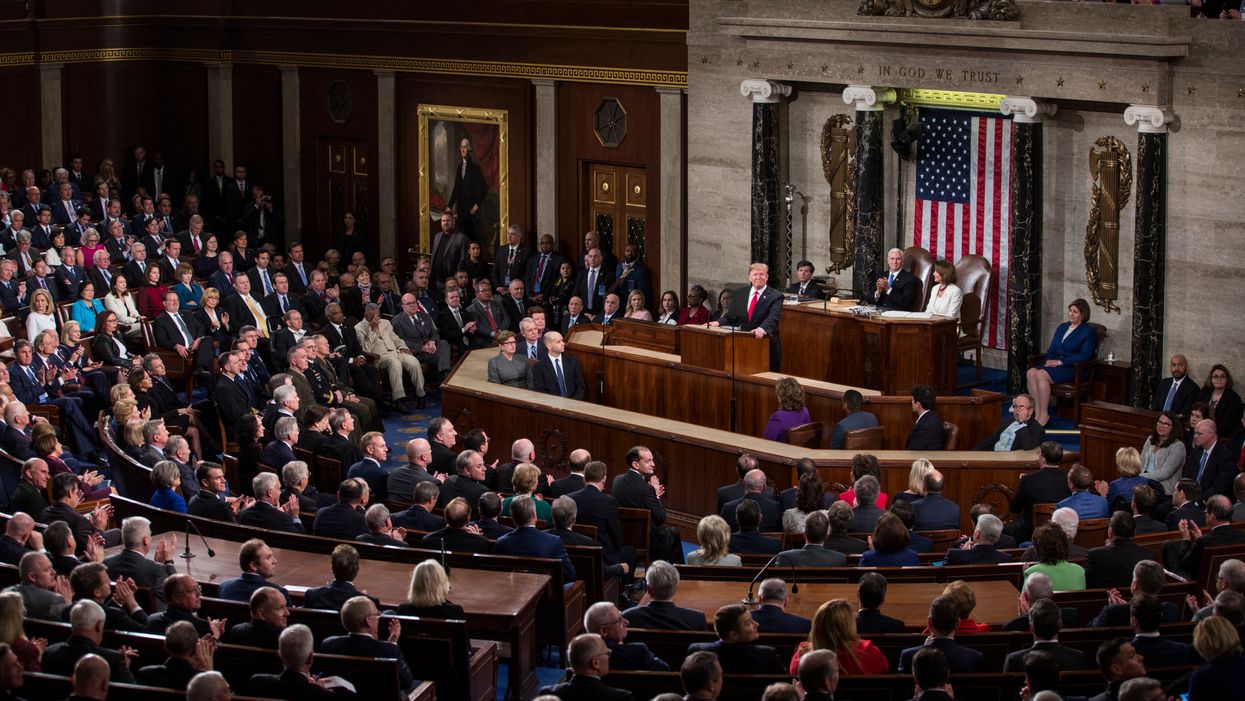Neal is federal government affairs manager a t R Street Institute, a nonpartisan and pro-free-market public policy research organization.
The term "democratic norms" has become a misnomer over the last year. America's governing institutions are undermined by elected officials who dishonor their offices and each other. Standards of behavior and "normal" processes of governance seem to be relics of a simpler time. Our democracy has survived thus far, but the wounds are many.
Free speech and free press have been the White House's two consistent whipping posts. Comments such as"I think it is embarrassing for the country to allow protestors" and constant attacks on press credibility showcase President Trump's disdain for the pillars of democracy. Traditional interactions between the administration and the press are no longer taken for granted. Demeaning, toxic criticisms have become so common that they're being ignored. As the administration revokes critics' press passes and daily briefings are canceled, normalcy in this arena is sorely missed.
Meanwhile, the president spouts daily outrages over Twitter and legislators race to the bottom with their own pronouncements. Most notably, the president recently suggested that several congresswomen — all American citizens — "go back and fix the totally broken and crime infested places from which they came." That the president's tweets count as Official White House Statements demonstrates that this is becoming "acceptable" language from a public official, only underscoring how far civility in political discourse has declined.
Equally concerning is the deterioration of America's institutional balance of powers. In February, Trump made clear in his State of the Union address that he would stonewall the legislative process if members of Congress don't play ball. "If there is going to be peace and legislation, there cannot be war and investigation. It just doesn't work that way," he said.
That threat materialized in February, when the president declared a national emergency to fund construction of his border wall, making good on his promise to "do it if I want." Congress attempted to respond to Trump's abuse of emergency powers, but gridlock prevented any success, signaling the first branch's own institutional decay.
While the White House continually breaks precedents, Congress fails to maintain its own institutional processes. The 116th Congress began with the longest government shutdown in history and has yet to pass a budget for fiscal 2020, essentially abdicating its power of the purse. Recently, the American Institutions Network noted with concern that 64 percent of our representatives and senators have never participated in a regular-order budget process, which hasn't been completed successfully since 1996.
In terms of other "normal" responsibilities, the Senate struggles to maintain even regular floor procedure. In July, the Senate set a record for the least number of amendment votes taken before August recess — only four roll call votes had been recorded since January.
All this dysfunction has had collateral effects on the third branch of our government. The judiciary has been saddled with divisive issues, from gun control to detention of immigrants, giving the appearance that the court is picking sides in a political war.
Public perception of the judiciary is the most politicized in decades, and talk of "fixing" (read: packing) the court has become fashionable. The notion that jurists rise above the political fray is being discarded, leaving room for an image of the court as a political weapon for majorities.
The late Sen. Daniel Patrick Moynihan once warned of "defining deviancy down" by dismissing the abnormal as typical. This idea resonates here. Recent changes to America's political fabric are substantial. Congress' legislative accomplishments seem paltry in the face of the administration's actions. Democratic norms have been broken across all three branches of government, and our system of checks and balances has lost its teeth.
As 2020 approaches, concerned citizens should use their votes to encourage candidates to restore normalcy in governance. In the meantime, we should continue to call out violations of democratic norms and fight for their reinstatement.



















